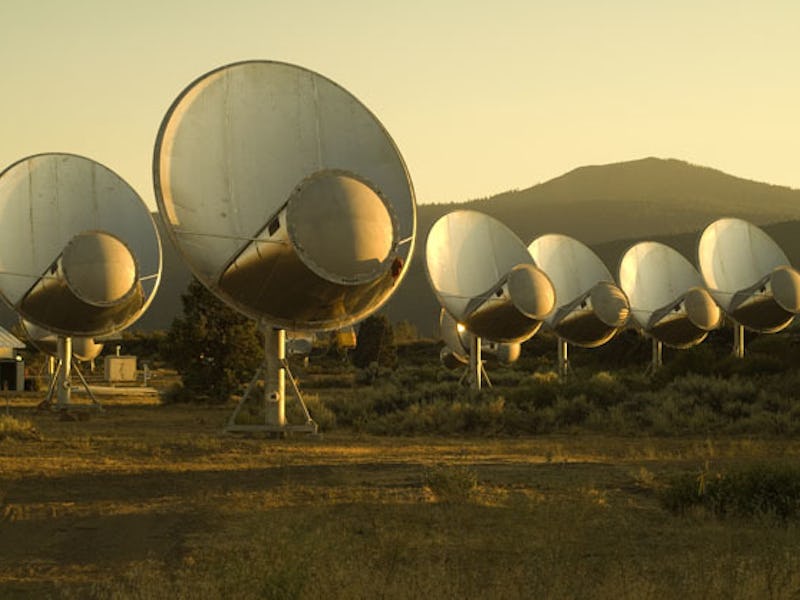SETI Institute Scientists Now Available for Consulting Services
"Take advantage of Silicon Valley."

Given that SETI stands for the “search for extraterrestrial intelligence,” the Mountain View, California-based SETI Institute has a pretty clear goal: to find aliens. But the institute isn’t in the best financial situation right now (unlike some of its nearby competitors).
That’s why the SETI Institute announced Thursday that it would begin making its staff scientists available to private businesses and academic institutions for consulting services.
When Bill Diamond came on as the President and CEO of the SETI Institute last year, he knew he would need to diversify the organization’s revenue. NASA and the National Science Foundation weren’t going to cut it. The answer? “Take advantage of Silicon Valley,” he tells Inverse, “and bring services to the table for the myriad of companies here.”
SETI Institute scientists have a wider range of skills and knowledge — beyond, you know, alien stuff — spanning the science and tech sector. Although the organization’s research goals revolve around astrobiology, Diamond says the institute’s experts can contribute to the other physical sciences, Chemistry, in particular: SETI scientists can develop and operate all kinds of instrumentation related to spectroscopy, chromatography, x-ray diffraction, and chemical modeling and analysis.
Moreover, the institute has scientists who have “worked underneath the Antarctic ice, and in the middle of hot deserts around the world,” says Diamond. Knowing how to develop functional equipment that can work in the harshest climates on Earth is a pretty rare and valuable skill.
Besides injecting cash, Diamond thinks these collaborations can help the SETI Institute get several different projects off the ground. The SETI Institute primarily conducts its search for aliens using its Allen Telescope Array, but it hopes to work with other companies that specialize in RF technology to improve those instruments and its digital signal processing.
CubeSats are a particularly exciting new venture for space exploration. Diamond says he hopes through these consulting services, the organization can create partnerships with other companies that can help build and launch those satellites into space and allow researchers to expand their SETI efforts.
Still, Diamond says this new move doesn’t shift the focus of the SETI Institute’s primary goals. “We don’t want to deviate from our fundamental mission of astrobiology and life in the universe,” he says.
“Beyond that, we’re looking forward to seeing where our future collaborations take us.”